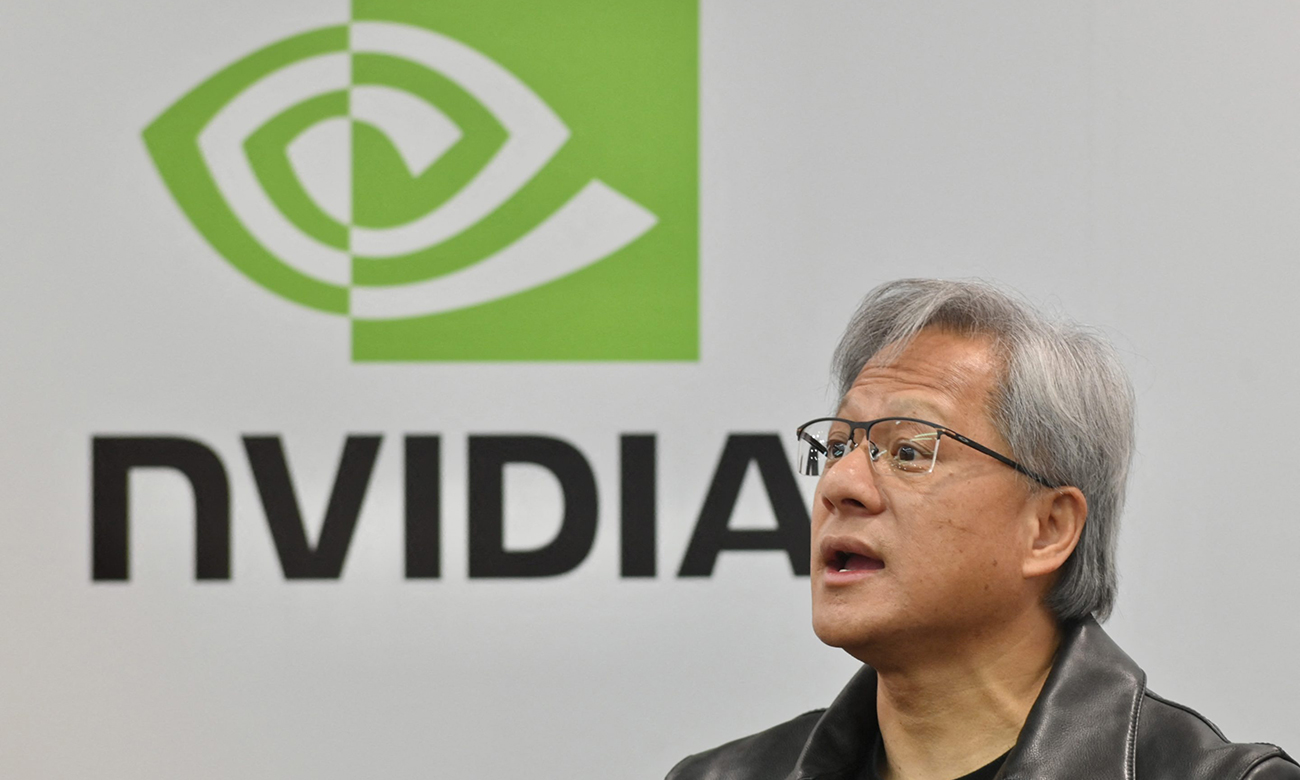
英偉達(dá)(Nvidia)股價(jià)大漲,,使其在今年成為全球最有價(jià)值的公司之一,。雖然這家科技公司大獲成功,但其聯(lián)合創(chuàng)始人兼CEO黃仁勛卻態(tài)度堅(jiān)定地表示,,如果有重來(lái)一次的機(jī)會(huì),,他不會(huì)選擇創(chuàng)業(yè)。
60歲的黃仁勛接受了播客《Acquired》的采訪,,采訪的話題廣泛,。這期播客在上周發(fā)布。在采訪中,,他被問(wèn)到如果重新回到30多歲的年紀(jì),,他會(huì)考慮創(chuàng)建一家什么樣的公司。
黃仁勛不假思索地回答道:“我不會(huì)創(chuàng)業(yè),?!?/p>
他補(bǔ)充道如果有機(jī)會(huì)重來(lái),他拒絕選擇從零開(kāi)始創(chuàng)建一家公司的理由,,“非常簡(jiǎn)單”,,那就是創(chuàng)業(yè)過(guò)程會(huì)令人精疲力盡。
他表示:“創(chuàng)建英偉達(dá)的艱難程度遠(yuǎn)遠(yuǎn)超出我的預(yù)期,,甚至已超出了任何人的預(yù)期,。如果我們能意識(shí)到在創(chuàng)業(yè)過(guò)程中,你會(huì)遭遇的痛苦和折磨,,你會(huì)感到自己多么脆弱,,你要忍受的挑戰(zhàn)、尷尬和羞恥,,以及你會(huì)犯下的所有錯(cuò)誤,,我認(rèn)為不會(huì)有任何人想要?jiǎng)?chuàng)建一家公司,。只要是腦袋正常的人都不會(huì)選擇創(chuàng)業(yè)?!?/p>
英偉達(dá)跌宕起伏的成功過(guò)程
畢業(yè)于斯坦福大學(xué)(Stanford)的黃仁勛在1993年參與創(chuàng)建了英偉達(dá),,生產(chǎn)在數(shù)據(jù)中心、自動(dòng)駕駛汽車和游戲設(shè)備中使用的計(jì)算機(jī)處理器,,而且他將這家公司發(fā)展成全世界最有價(jià)值的上市公司之一,。
2023年,對(duì)人工智能的需求大幅增長(zhǎng),,使英偉達(dá)迎來(lái)了一次股價(jià)暴漲,。英偉達(dá)的收益超出了華爾街的預(yù)期,而且黃仁勛公開(kāi)宣布看好人工智能,。
今年迄今為止,,英偉達(dá)股票上漲約190%,這讓它進(jìn)入了萬(wàn)億美元估值精英俱樂(lè)部,,其中還包括蘋果(Apple),、微軟(Microsoft)、沙特阿美(Saudi Aramco)和谷歌(Google)母公司Alphabet,。
公司的成功給黃仁勛個(gè)人帶來(lái)了巨大回報(bào),據(jù)彭博社的實(shí)時(shí)億萬(wàn)富翁財(cái)富跟蹤系統(tǒng)顯示,,黃仁勛目前的資產(chǎn)凈值約為370億美元,。這讓他排在全球富豪榜的第31位。
但對(duì)于黃仁勛和英偉達(dá)而言,,過(guò)去數(shù)十年并非一帆風(fēng)順,。
1995年,英偉達(dá)的第一款芯片NV1未能吸引付費(fèi)客戶,,導(dǎo)致公司一度瀕臨破產(chǎn),。當(dāng)時(shí)成立僅兩年的英偉達(dá)不得不裁掉了一半員工。其1997年發(fā)布的第三款芯片RIVA 128大獲成功,,改變了公司的命運(yùn),。
最近,在2022年,,公司面對(duì)令人失望的收益指引,,不得不減緩招聘和削減開(kāi)支。
去年,,面對(duì)大西洋兩岸各國(guó)監(jiān)管機(jī)構(gòu)的不斷施壓,,英偉達(dá)以400億美元收購(gòu)芯片設(shè)計(jì)公司ARM的交易以失敗告終,而且公司還因?yàn)槠浼用茇泿磐诘V活動(dòng)的信息披露問(wèn)題遭到美國(guó)證券交易委員會(huì)(U.S. Securities and Exchange Commission,,SEC)的指控,。英偉達(dá)以550萬(wàn)美元,,與美國(guó)證券交易委員會(huì)就后者達(dá)成了和解。
黃仁勛對(duì)《Acquired》播客的主持人本·吉爾伯特和大衛(wèi)·羅森塔爾表示,,“創(chuàng)業(yè)者的超能力”實(shí)際上是他們對(duì)領(lǐng)導(dǎo)一家公司的艱難程度的無(wú)知,。
他說(shuō)道:“他們不知道創(chuàng)業(yè)的過(guò)程是多么艱難——他們只能問(wèn)自己:‘創(chuàng)業(yè)能有多難’?到目前為止,,我還在想:‘創(chuàng)業(yè)能有多難,?’,以此來(lái)欺騙自己的大腦,。因?yàn)槟悴坏貌贿@樣做,。你必須讓自己相信創(chuàng)業(yè)過(guò)程并不難,因?yàn)樗鼘?shí)際上要比你想象的更加艱難,?!?/p>
黃仁勛補(bǔ)充道,他在職業(yè)生涯中積累的經(jīng)驗(yàn),,足以讓他在時(shí)間倒流的時(shí)候,,打消創(chuàng)業(yè)的念頭。
他說(shuō)道:“如果我?guī)еF(xiàn)在的所有知識(shí)重回過(guò)去,,我還說(shuō):‘我要再次忍受整個(gè)過(guò)程’……我認(rèn)為這太過(guò)分了,。真的很過(guò)分?!保ㄘ?cái)富中文網(wǎng))
翻譯:劉進(jìn)龍
審校:汪皓
英偉達(dá)(Nvidia)股價(jià)大漲,,使其在今年成為全球最有價(jià)值的公司之一。雖然這家科技公司大獲成功,,但其聯(lián)合創(chuàng)始人兼CEO黃仁勛卻態(tài)度堅(jiān)定地表示,,如果有重來(lái)一次的機(jī)會(huì),他不會(huì)選擇創(chuàng)業(yè),。
60歲的黃仁勛接受了播客《Acquired》的采訪,,采訪的話題廣泛。這期播客在上周發(fā)布,。在采訪中,,他被問(wèn)到如果重新回到30多歲的年紀(jì),他會(huì)考慮創(chuàng)建一家什么樣的公司,。
黃仁勛不假思索地回答道:“我不會(huì)創(chuàng)業(yè),。”
他補(bǔ)充道如果有機(jī)會(huì)重來(lái),,他拒絕選擇從零開(kāi)始創(chuàng)建一家公司的理由,,“非常簡(jiǎn)單”,那就是創(chuàng)業(yè)過(guò)程會(huì)令人精疲力盡,。
他表示:“創(chuàng)建英偉達(dá)的艱難程度遠(yuǎn)遠(yuǎn)超出我的預(yù)期,,甚至已超出了任何人的預(yù)期,。如果我們能意識(shí)到在創(chuàng)業(yè)過(guò)程中,你會(huì)遭遇的痛苦和折磨,,你會(huì)感到自己多么脆弱,,你要忍受的挑戰(zhàn)、尷尬和羞恥,,以及你會(huì)犯下的所有錯(cuò)誤,,我認(rèn)為不會(huì)有任何人想要?jiǎng)?chuàng)建一家公司。只要是腦袋正常的人都不會(huì)選擇創(chuàng)業(yè),?!?/p>
英偉達(dá)跌宕起伏的成功過(guò)程
畢業(yè)于斯坦福大學(xué)(Stanford)的黃仁勛在1993年參與創(chuàng)建了英偉達(dá),生產(chǎn)在數(shù)據(jù)中心,、自動(dòng)駕駛汽車和游戲設(shè)備中使用的計(jì)算機(jī)處理器,,而且他將這家公司發(fā)展成全世界最有價(jià)值的上市公司之一。
2023年,,對(duì)人工智能的需求大幅增長(zhǎng),,使英偉達(dá)迎來(lái)了一次股價(jià)暴漲。英偉達(dá)的收益超出了華爾街的預(yù)期,,而且黃仁勛公開(kāi)宣布看好人工智能,。
今年迄今為止,英偉達(dá)股票上漲約190%,,這讓它進(jìn)入了萬(wàn)億美元估值精英俱樂(lè)部,,其中還包括蘋果(Apple)、微軟(Microsoft),、沙特阿美(Saudi Aramco)和谷歌(Google)母公司Alphabet。
公司的成功給黃仁勛個(gè)人帶來(lái)了巨大回報(bào),,據(jù)彭博社的實(shí)時(shí)億萬(wàn)富翁財(cái)富跟蹤系統(tǒng)顯示,,黃仁勛目前的資產(chǎn)凈值約為370億美元。這讓他排在全球富豪榜的第31位,。
但對(duì)于黃仁勛和英偉達(dá)而言,,過(guò)去數(shù)十年并非一帆風(fēng)順。
1995年,,英偉達(dá)的第一款芯片NV1未能吸引付費(fèi)客戶,,導(dǎo)致公司一度瀕臨破產(chǎn)。當(dāng)時(shí)成立僅兩年的英偉達(dá)不得不裁掉了一半員工,。其1997年發(fā)布的第三款芯片RIVA 128大獲成功,,改變了公司的命運(yùn)。
最近,,在2022年,,公司面對(duì)令人失望的收益指引,,不得不減緩招聘和削減開(kāi)支。
去年,,面對(duì)大西洋兩岸各國(guó)監(jiān)管機(jī)構(gòu)的不斷施壓,,英偉達(dá)以400億美元收購(gòu)芯片設(shè)計(jì)公司ARM的交易以失敗告終,而且公司還因?yàn)槠浼用茇泿磐诘V活動(dòng)的信息披露問(wèn)題遭到美國(guó)證券交易委員會(huì)(U.S. Securities and Exchange Commission,,SEC)的指控,。英偉達(dá)以550萬(wàn)美元,與美國(guó)證券交易委員會(huì)就后者達(dá)成了和解,。
黃仁勛對(duì)《Acquired》播客的主持人本·吉爾伯特和大衛(wèi)·羅森塔爾表示,,“創(chuàng)業(yè)者的超能力”實(shí)際上是他們對(duì)領(lǐng)導(dǎo)一家公司的艱難程度的無(wú)知。
他說(shuō)道:“他們不知道創(chuàng)業(yè)的過(guò)程是多么艱難——他們只能問(wèn)自己:‘創(chuàng)業(yè)能有多難’,?到目前為止,,我還在想:‘創(chuàng)業(yè)能有多難?’,,以此來(lái)欺騙自己的大腦,。因?yàn)槟悴坏貌贿@樣做。你必須讓自己相信創(chuàng)業(yè)過(guò)程并不難,,因?yàn)樗鼘?shí)際上要比你想象的更加艱難,。”
黃仁勛補(bǔ)充道,,他在職業(yè)生涯中積累的經(jīng)驗(yàn),,足以讓他在時(shí)間倒流的時(shí)候,打消創(chuàng)業(yè)的念頭,。
他說(shuō)道:“如果我?guī)еF(xiàn)在的所有知識(shí)重回過(guò)去,,我還說(shuō):‘我要再次忍受整個(gè)過(guò)程’……我認(rèn)為這太過(guò)分了。真的很過(guò)分,?!保ㄘ?cái)富中文網(wǎng))
翻譯:劉進(jìn)龍
審校:汪皓
Nvidia’s major stock rally has seen it become one of the world’s most valuable companies this year—but in spite of its success, the tech firm’s cofounder and CEO, Jensen Huang, is adamant he wouldn’t start the business if he was given his time again.
During a wide-ranging interview with the Acquired podcast that was published last week, Huang, 60, was asked what sort of company he would think about starting if he could go back to being 30 years old.
“I wouldn’t do it,” was Huang’s immediate answer.
His reason for rejecting the option to build a company from the ground up if he could have a do-over was “quite simple,” he added: It’s just too grueling.
“Building Nvidia turned out to have been a million times harder than I expected it to be—than any of us expected it to be,” Huang said. “If we realized the pain and suffering [involved] and just how vulnerable you’re going to feel, the challenges that you’re going to endure, the embarrassment and the shame, and the list of all the things that go wrong—I don’t think anybody would start a company. Nobody in their right mind would do it.”
Nvidia’s roller-coaster ride to success
Stanford graduate Huang cofounded Nvidia—which makes computer processors that are used in data centers, autonomous vehicles, and gaming—in 1993, and has built the firm into one of the most valuable publicly listed businesses in the world.
The company has enjoyed a major share price rally in 2023 thanks to a boom in demand for artificial intelligence, with its earnings smashing Wall Street estimates and Huang publicly declaring his bullishness on AI.
So far this year, Nvidia stock has gained around 190%—cementing its position in the elite trillion-dollar valuation club, comprising a select few companies including Apple, Microsoft, Saudi Aramco, and Google parent firm Alphabet.
Huang himself has been a beneficiary of the company’s success, with his net worth currently standing at almost $37 billion, according to Bloomberg’s real-time tracker of billionaires’ wealth. That makes Huang the 31st richest person on the planet.
But it hasn’t been decades of smooth sailing for Huang and Nvidia.
In 1995, Nvidia almost went bankrupt after its first chip, the NV1, failed to attract paying customers. The then two-year-old startup had to lay off half its employees. The firm was saved by the success of its third chip, the RIVA 128, which was rolled out in 1997.
More recently—in 2022—the company had to contend with underwhelming earnings guidance, which forced it to slow hiring and clamp down on expenses.
Last year also saw Nvidia’s $40 billion takeover of chip designer Arm fall through following mounting pressure from regulators on both sides of the Atlantic, and charges from the U.S. Securities and Exchange Commission (SEC) related to disclosures around its cryptomining activity. Nvidia settled the latter with the SEC for $5.5 million.
Huang told Acquired hosts Ben Gilbert and David Rosenthal that “the superpower of an entrepreneur” was actually their ignorance around how difficult spearheading a company could be.
“They don’t know how hard it is—they only ask themselves, ‘How hard can it be?’” he said. “To this day, I trick my brain into thinking, ‘How hard can it be?’ Because you have to. You have to get yourself to believe it’s not that hard, because it’s way harder than you think.”
The experience he had built up throughout his career would be enough to deter him from starting over if he could go back in time, Huang added.
“If I take all of my knowledge now, and I go back, and I [say], ‘I’m going to endure that whole journey again’…I think it’s too much. It is just too much,” he said.






